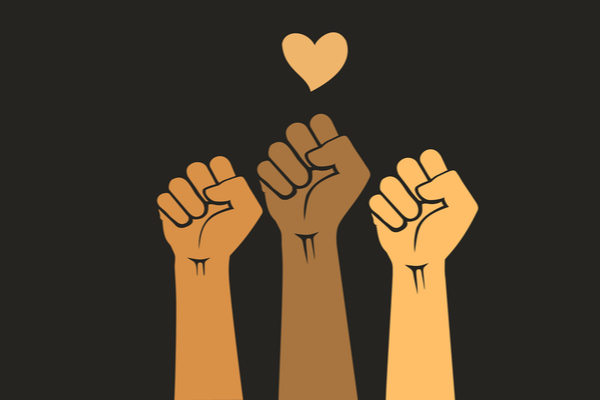A group of anchor leaders announced a first-of-its-kind fund to support the Black community in Washington state. The Black Future Co-op Fund launched with over $2.5 million in committed donations from dozens of corporations, philanthropies, and individuals. These generous gifts are eligible to be matched one to one by Amazon founder and CEO Jeff Bezos, who is matching unique donations up to $1 million to All In WA causes, up to a total of $25 million. Formed as a powerful response to systemic racism, the Fund aims to respond to the disproportionate impacts on COVID-19, strengthen Black culture, increase resilience to economic and other shocks, and build generational wealth.
“The Black communities across Washington state have long done the work to uplift our communities without appropriate funding and resources. The Black Future Co-op Fund will ensure that we have a strong infrastructure and network for sustainable progress,” said Angela Jones, CEO of Washington STEM.
Jones is one of the architects of the Fund alongside Michelle Merriweather, President and CEO of the Urban League of Metropolitan Seattle; Andrea Caupain, CEO of Byrd Barr Place; and T’wina Nobles, President and CEO of Tacoma Urban League. All of the Fund’s architects are women with long histories of supporting Washington’s Black community.
The Fund will invest in a range of areas including health, housing, education, youth development, art and history, economic and land development, and advocacy and civic engagement. According to Andrea Caupain of Byrd Barr Place, the Fund is an acknowledgement of the harm that systemic racism has done to the Black community in Washington state. “The world has leveraged Black people for profit for centuries. This fund begins to turn that tide,” said Caupain.
The Fund, which is housed at Seattle Foundation, was conceptualized in the wake of George Floyd’s murder by a Minneapolis police officer, but its roots go much deeper. Entrenched systemic inequities have caused Black people to be disproportionately impacted by the coronavirus pandemic, contracting the disease and dying at higher rates than white people and other groups. Black unemployment has soared to rates that rival the Great Depression and many Black youth have been unable to continue their studies due to a lack of Wi-Fi access in their homes. These inequities are due to overwhelming system failure and structural racism.
But the Fund’s architects and its supporters see opportunity amidst these intense challenges. A growing list of corporate donors and philanthropic institutions have thrown their support behind the Fund, which aims to raise a total of $25 million. Initial contributions have been confirmed from Microsoft Corporation, Seattle Seahawks Charitable Foundation, The Ballmer Group, Paul G. Allen Family Foundation, Puget Sound Energy, Zillow Group, The Starbucks Foundation, JPMorgan Chase & Co., Virginia Mason Health System, and Laird Norton Family Foundation.
There is an impressive and growing list of individual philanthropists who have pledged their support as well, including (listed alphabetically): Robert W. Andrade Jr., Paula Boggs, Randee Fox and Jada Boggs, Adriane and Darryl Brown, Phyllis Campbell, Ray and Katie Conner, Garret and Nikki Daggett, Craig Dawson, Trish Dziko, Nick and Leslie Hanauer, Bruce and Joann Harrell, Latisha and Eric Hill, Shaunta and Al Hyde, Angela Jones, Mary Knell, Gary Locke, Regina Malveaux, Susan Mullaney and Shari Kauls, Gordon McHenry, Jr., Leslie Harper-Miles and Nate Miles, Julie and Erik Nordstrom, Roger Nyhus, Hyeok Kim and Michael Parham, Diana Birkett Rakow and Jeff Rakow, Constance and Norm Rice, Mary Pugh and Michael Scoggins, Jill and Rajeev Singh, Marilyn Strickland, Brad and Danielle Tilden, H.S. Wright III, and Jessie Woolley-Wilson.
The Fund’s leaders are excited to direct philanthropic support toward upstream systems change. Michelle Merriweather shared her thoughts on the significance of this moment, “This is a dream come true for the four of us. We have shared ideas, frustration, and thoughts about ‘what could be’ if we were able to scale good work being done. It is important that we don’t allow this to end in this moment, but leverage this to change a generation and those future generations yet to be born.”
—
Photo Credit: 3ffi / Shutterstock.com
